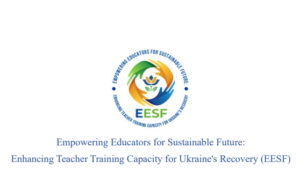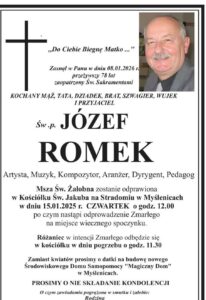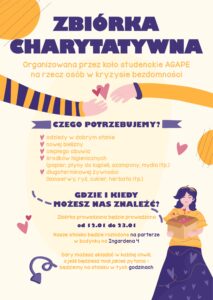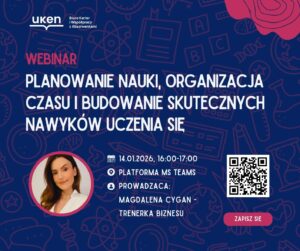Program konferencji – TRANSFORMATIONS AND CONSEQUENCES IN SOCIETY DUE TO COVID-19
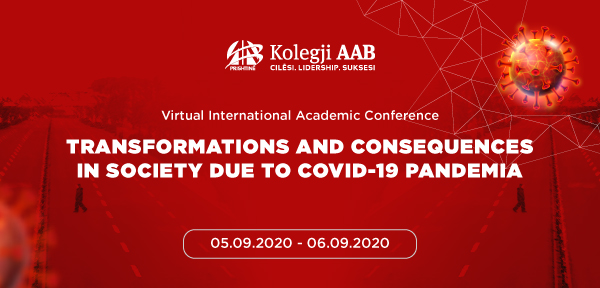
Instytut Nauk o Wychowaniu jest współorganizatorem konferencji naukowej „TRANSFORMATIONS AND CONSEQUENCES IN SOCIETY DUE TO COVID-19”, która odbędzie się w dniach 05-06.09.2020. Organizatorem wydarzenia jest AAB College, Kosowo wraz z: Faculty of Criminalistics, Criminology and Security Studies, University of Sarajevo; Department of Journalism and Communication, University of Tirana; Faculty of Pedagogy – St. Climent Ohridski University-Bitola, North Macedonia; University of Structural Engineering & Architecture ‘Lyuben Karavelov’, Sofia; Communication Institute of Greece Athens. W wydarzeniu będzie uczestniczyło 183 prelegentów z 28 krajów.
W ramach konferencji wydzielono panel poświęcony kształceniu na odległość w dobie COVID-19. W sekcji „Smart Ecosystem for Learning and Inclusion” moderowanej i organizowanej INOW zostaną zaprezentowane następujące referaty:
Turning to smart learning ecosystem during pandemic situation: the case of SELI
Dr. Solomon Sunday Oyelere
University of Eastern Finland, Joensuu, Finland.
Abstract
The current pandemic has created a huge dilemma in the education sector, whether to provide education completely remotely, blended or retain the traditional face-to-face? Perhaps, it is obviously impossible to opt for the face-to-face medium during the pandemic. Similarly, resource-constrained contexts may not have the luxury of a completely remote education. The situation is even incomprehensible for people with certain disabilities that would need specific support to achieve educational goals. For example, it is unclear how the elderly, migrants, physically challenged (those with certain impairment) are accessing education in the ongoing pandemic. To address some of the challenges faced by those in need of special support in education, this speech will present the services offered under the auspices of a joint educational project, Smart Ecosystem for Learning and Inclusion (SELI). SELI has implemented a digital learning platform comprising pedagogical solutions, methods, strategies and technology to address the needs of the disadvantaged persons. These solutions are especially timely and relevant in the ongoing pandemic.
Keywords: smart learning, ecosystem learning, traditional learning, e-learning, SELI project.
Digital Storytelling for teacher education during pandemics
Ozgur Yaşar Akyar
Hacettepe University, Ankara, Turkey. Email: ozguryasar@hacettepe.edu.tr
Abstract
The study conducted with pre-service physical education teachers as part of a last year practicum course called “teaching practice” in the spring semester of 2019-2020 education period. Digital storytelling was integrated to the course with a purpose to provide multimodal conversation between faculty members and pre-service physical education teachers. Course was originally planned as a 14-week course including face to face and online lessons in each week both complement each other, however face to face lessons were implemented only during the first three weeks because of the lockdown of Covid-19 pandemics.Digital storytelling workshop processes also adapted to online mode as it was not possible to conduct in face to face. This adaptation required using digital tools such as zoom and skype for story circle, google online documents for working on story text and SELI digital storytelling tool for voice recording, bringing text, sound and images as digital stories. Results of observations and focus group interviews reveals digital storytelling provided multiple ways of expressions to pre-service teachers as they could reflect on their experiences and conditions of educational exclusion because of Covid-19 pandemics.
Keywords: Digital storytelling, teacher, Covid-19.
Inclusive Education in Virtual Classes
Prof. Dr. Maria Amelia Eliseo
Universidade Presbiteriana Mackenzie, Sao Paolo, Brasil. Email: mariaamelia.eliseo@mackenzie.br
Abstract
Due to the COVID 19 pandemic a lot of schools around the world closed their doors and suddenly the face to face class has changed to virtual class. Thus, this speech will address how to maintain the inclusion of people with disabilities in this new class format. Digital technology has the potential to help students with special needs that are often unknown to teachers and students. The aim is to show the support of technology in inclusive education in the context of the SELI project (Smart Ecosystem for Learning and Inclusion). We will discuss how the teacher can choose accessible teaching materials for his classes according to each disability. And how students can take advantage of accessible digital resources to improve their learning process.
Keywords: inclusive education, virtual classes, Covid-19, SELI
Stressing the learning ecosystem under pandemic time
Prof. Dr. Regina Motz
Universidad de la República de Uruguay – UdelaR, Montevideo, Uruguay. Email: rmotz@fing.edu.uy
Abstract
The learning ecosystem is a complex interrelation among academic systems (educational institutions), social groups (family, friends, informal spaces as social networks), administrative, economic, and even health-care systems, as has become evident in these times of pandemic COVID-19. However, considering actors at the fine granularity and in the most sensitive participation, the attention must be put on learners and teachers. In this presentation, we will focus on the conceptualization of the learning ecosystem from the teacher’s and learner’s point of view and how the disruption of the pandemic affects these relationships. We reflect on how to effectively integrate and digitalize the learning ecosystem to accommodate the needs of modern teachers and learners from the perspective of the SELI project (Smart Ecosystem for Learning and Inclusion) and the experience lived in Uruguay during the first semester of 2020. Lessons learned show the need for a perspective of a pedagogy of care, attending to issues of diversity and vulnerability to which this emergency situation exposed us, as individuals and as an educational community.
Keywords: learning ecosystem, Covid-19, Uruguay.
The Dominican Republic experience in the transition from traditional education to e-learning driver by Covid-19
Prof. Dr. Darwin Munoz
Universidad Federico Henríquez y Carvajal (UFHEC), Santo Domingo, Dominican Republic. Email: Darwin.Munoz@ufhec.edu.do
Abstract
The global emergency caused by SARS-CoV-2 (COVID-19) has prompted governments in the region and the world to transform their education systems, mostly face to face, into a digital or blended pedagogical model, using specialized tools to continue their teaching-learning process. This paradigm shift is a major challenge for developing countries like the Dominican Republic, but at the same time, it becomes a unique opportunity to move forward on the digital transformation process. This emergency has experienced an accelerated transition to this new educational model, in public and private school, incorporating key transformations in three fundamental aspects: technological infrastructure, training and technological resources for virtual online learning environments. Despite a significant amount of dropout at the university level (approximately 30%), these initiatives have managed to maintain teaching at all levels, getting students successfully adapted to this new educational model, based in a smart ecosystem for learning and inclusion.
Keywords: traditional education, e-leaning, Covid, Dominician Republic.
Blockchain certificates for education
Dr. Juan Gabriel Barros Gavilanes
Universidad del Azuay, Cuenca, Ecuador, Email: gbarrosg@uazuay.edu.ec
Abstract
Understanding of the usefulness of Block-chain technology can be overwhelming, specially when it is related about the implementation on real servers and without monetary goals. Every time a student finish a course, it is possible to generate a certificate through the use of smart-contracts. Thus, these certificates are stored in an international network. The speech will present experiences gained during the project with emphasis on the importance of open source code to obtain a minimal working example. The base example for certificates front-end of the SELI environment, is a nuptial vows application. Additionally, generated manuals and one-on-one sessions have been required to coordinate the installation and configuration of the back-end network in coordination with different countries like Uruguay, Finland, Turkey, and Ecuador. Then, again these materials are open source for other institutions and researchers to enjoy and improve. Other possible ideas of use of Block-chain are also discussed (e.g. IPFS and badges).
Keywords: Certificate for education, blockchain, student.
E-learning in the view of pre-service teachers: expectations, experiences, needs and digital competences
Dr. inż. Łukasz Tomczyk
Pedagogical University of Cracow, Poland. Email: lukasz.tomczyk@up.krakow.pl
Abstract
The speech will present the conditions for remote education from the perspective of pedagogical students. The aim of the research is to show the characteristics of educational needs in the area of distance education, the level of digital competence of future teachers and the experience of students in the times before COVID-19. The speech will present data collected on a sample of less than half a thousand students at the largest Polish university educating teaching staff (Pedagogical University in Krakow). The results of the research are a part of the Smart Ecosystem for Learning and Inclusion SELI project financed from NCBiR sources.
Keywords: Distance education, digital competences, Covid-19, students, Polish university
Szczegółowy program wydarzenia jest dostępny tutaj: Conference Program_AAB College (1)
Więcej informacji: https://aab-edu.net/en/conference/transformations-and-consequences-in-society-due-to-covid-19-pandemia/
Wyniki badań związane są z realizacją projektu SELI finansowanego przez Narodowe Centrum Badań i Rozwoju.
